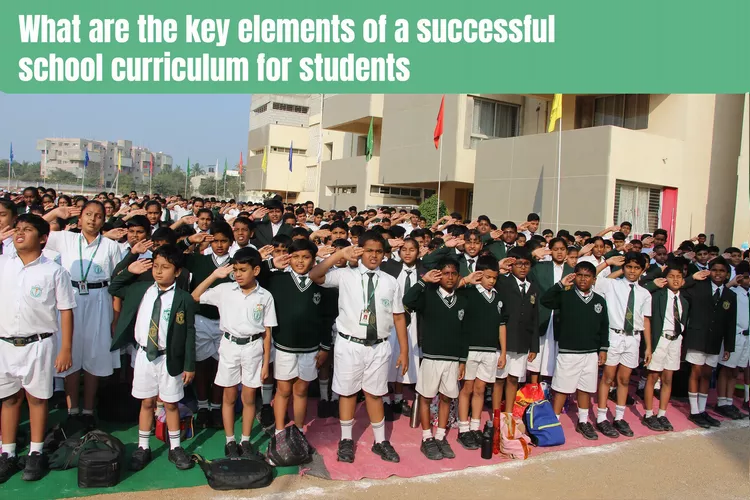A successful school curriculum is one that is well-rounded and comprehensive, providing students with the knowledge, skills, and practical experiences they need to become well-informed, confident, and capable individuals. A successful school curriculum should foster a love for learning and also provide opportunities for students to explore their interests and passions to develop their talents and abilities. Apart from academics, the curriculum should also create a platform for students to develop essential life skills and competencies, such as teamwork, communication, leadership, and time management. This can be achieved through extracurricular activities, clubs, and other programs that allow students to apply and practice these skills in a supportive and engaging environment.
There are several key elements that should be included in a successful school curriculum:
1. Core subjects:
These are the subjects that form the foundation of a student’s education. Core subjects include math, science, English/language arts, social studies, and foreign languages. Core subjects are an integral part of a school curriculum as they provide students with the fundamental knowledge and skills needed for success in higher education and the workforce. Math is a core subject that teaches students how to solve problems, and equations and think logically. It is used in various fields, including science, finance, robotics, and engineering.
Science teaches students about the functioning of the natural world. It assists students to understand important concepts such as the scientific method, evidence-based reasoning, and the importance of experimentation. English focuses on reading, writing, and communication skills which are crucial for both personal and professional endeavors.
2. Experiential learning:
This learning style is all about getting students pumped and ready to go by actually doing stuff such as field trips, internships, and hands-on projects. It’s a way for students to take what they learn and put it into practice, making their education way more exciting than just sitting in a boring old lecture. For instance, if you’re a history student, instead of just reading about what went down in the past, you could visit a museum and check out all the cool artifacts and monuments. It will bring history to life and give you a clear idea about various events that happened in the past.
3. Elective courses:
These are extra classes that students can pick and choose to take besides their main subjects. Electives let a student check out what they’re interested in and can cover things like art, music, drama, tech, and personal education. This is super valuable for those who have a special talent or interest in a subject that isn’t offered in the main curriculum.
For example, a student who is passionate about art may not have the opportunity to take many art classes if they are not offered as part of the core curriculum. Electives give the students a chance to dive deeper into their interests and may even find a career or hobby they are passionate about. These classes can assist to pick up new skills and knowledge that the mandatory classes won’t teach. Plus, it gives more control over education so that one can tailor it towards their specific goals and passions
4. Culture and Identity:
A successful school curriculum should also be inclusive and culturally responsive, taking into account the varied backgrounds and experiences of students. This can involve incorporating diverse perspectives and voices into the curriculum and using teaching strategies that are respectful and sensitive to the needs of all students. On a broad level, a curriculum reflects the national culture in which a school operates – different countries have different expectations of their students, even if teaching practices are similar. But it can also reflect and define the culture at the school level as well.
A good school curriculum is like a mix of different things that go beyond regular lessons. It includes main subjects to build a strong base, fun activities to make learning interesting, extra classes for exploring personal interests, and a perspective that includes everyone’s background. This kind of curriculum helps students not just with school stuff but also with important life skills. It’s like a toolkit that prepares them to be smart, confident, and ready for whatever comes their way. A well-rounded curriculum is super important for helping students grow in today’s changing world.




